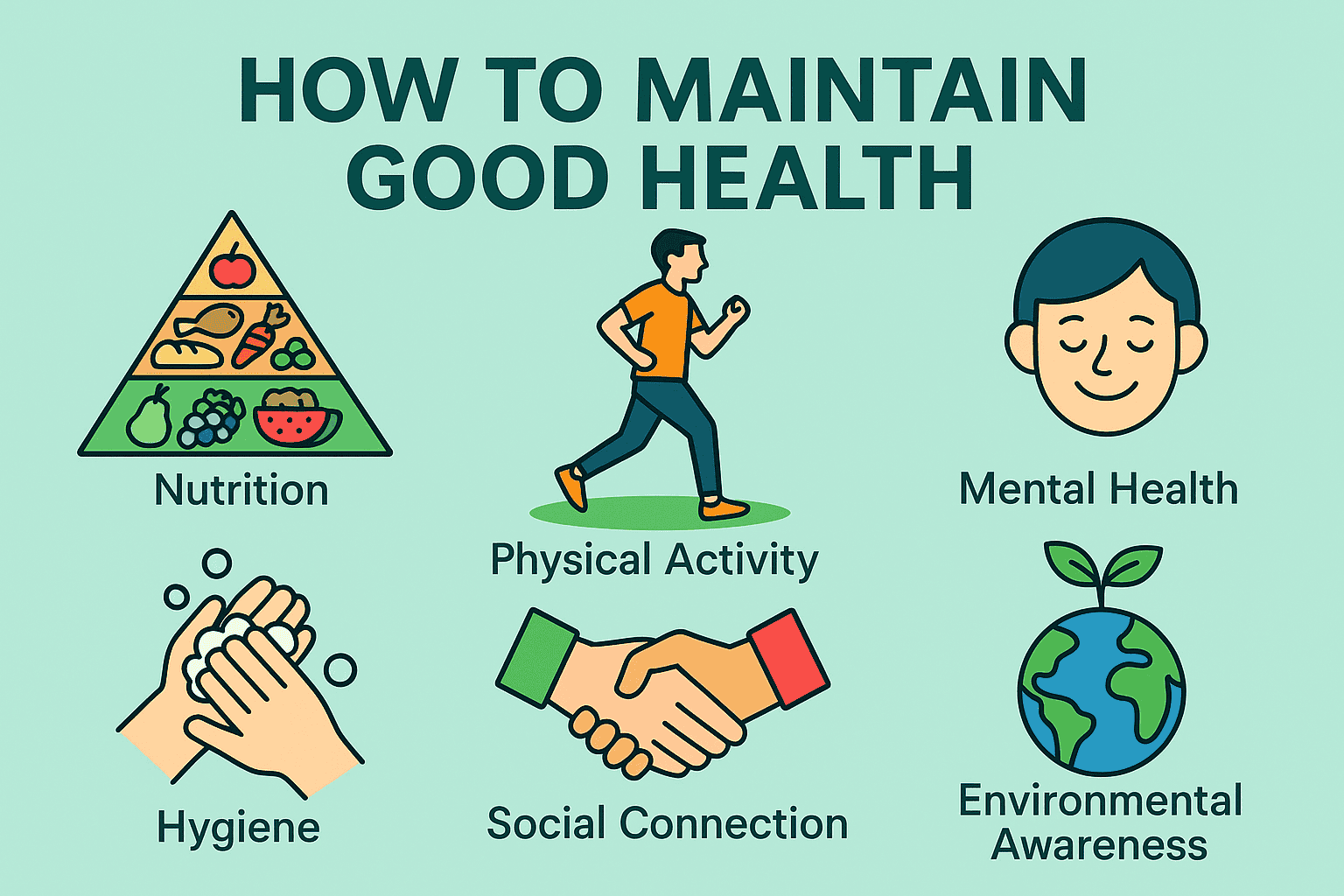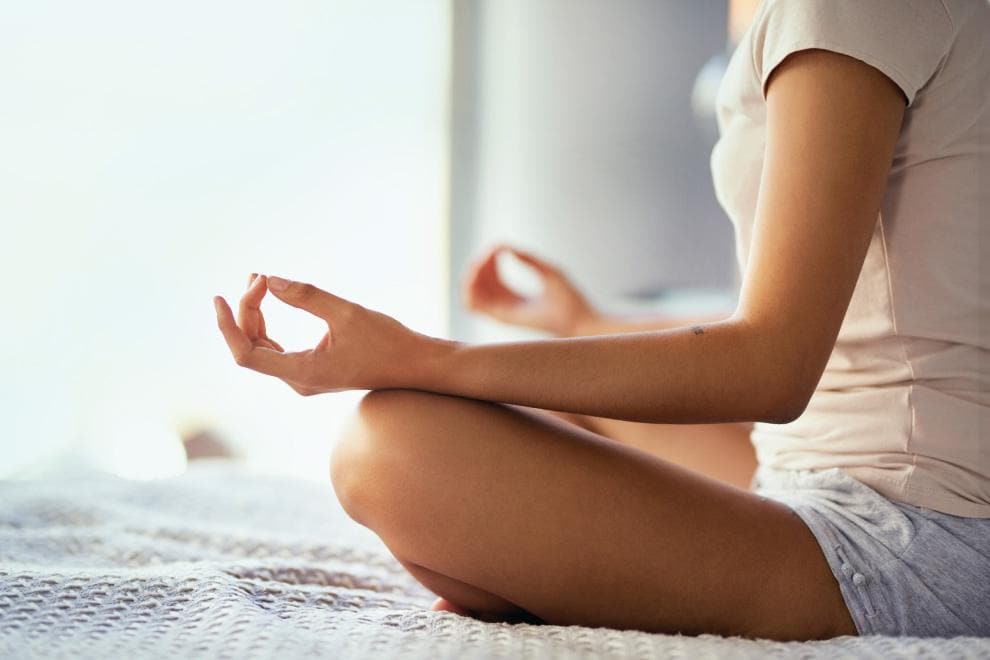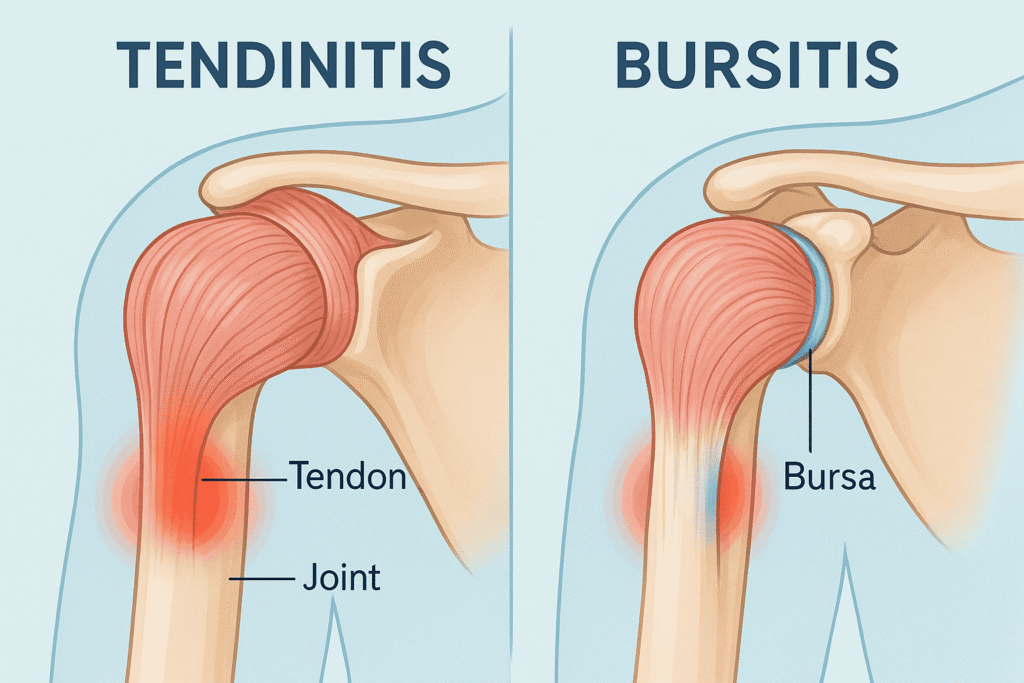When I first came across the World Health Organization’s definition of health — “a state of complete physical, mental, and social well-being and not merely the absence of disease or infirmity” — it completely changed the way I looked at health. It’s not just about not being sick. It’s about feeling good, functioning well, and being connected to yourself and others. Over time, I’ve learned that good health doesn’t come from just one thing. It’s a balance of multiple key areas. Here’s what I’ve personally experienced and learned:
🥗 1. Nutrition: Fueling the Body and Soul
I used to underestimate how much food affects everything — from mood to energy to immunity. But once I started eating more whole foods, fresh produce, and clean proteins, I felt the difference almost immediately. A balanced diet really is the foundation of preventive health.
What helped me most was understanding the food pyramid and sticking to simple principles:
- Eat more fruits, vegetables, and whole grains
- Limit processed and sugary foods
- Choose healthy fats and stay hydrated
Cooking fresh meals also became a social joy for me — a way to connect with friends and family over something nourishing. It’s not just food; it’s a lifestyle.
🏃♂️ 2. Physical Activity: Movement Is Medicine
Exercise used to feel like a chore. But I realized that I don’t need to spend hours at the gym. Just 30 minutes of moderate activity daily — walking, stretching, or cycling — made me feel lighter, happier, and stronger.
Physical activity improved my sleep, reduced my stress levels, and even enhanced my focus at work. The benefits? More than I expected:
- Boosted energy and reduced fatigue
- Improved blood pressure and heart health
- Helped maintain a healthy weight
- Better mood and mental clarity
Even small movements matter. You don’t need a gym membership to stay active — just consistency.
🧼 3. Hygiene: The Unsung Hero of Health
Good hygiene may seem basic, but it’s incredibly powerful. Personally, practicing consistent hygiene habits — from handwashing to dental care — has helped me avoid common illnesses and feel more confident in my day-to-day life.
It’s also closely linked to self-esteem. When I take care of myself physically, I automatically feel more in control mentally and emotionally.
🧠 4. Mental Health: The Inner Foundation
Mental health is as important as physical health — something I’ve learned the hard way. After going through a high-stress period in my life, I realized that no diet or fitness routine can help if your mind is overwhelmed.
Mental well-being means:
- Emotional stability
- Cognitive clarity
- The ability to cope with life’s challenges
- Feeling connected and purposeful
For me, journaling, therapy, and meditation were life-changing. Even simple things like getting proper rest or spending time with loved ones made a big difference.
👥 5. Social Connection: Health Is Also Who You’re With
We’re social creatures. During the pandemic, I learned how much I need people — not just virtually, but in real life. Engaging in community activities, joining group hobbies, or simply talking with friends helped me feel more alive.
Social interaction fuels optimism, lowers the risk of depression, and gives life deeper meaning. I try to make time for meaningful conversations, laughter, and shared experiences — and my health is better for it.
🌍 6. Environmental Awareness: Protecting Our Space, Protecting Ourselves
Health isn’t only about what’s inside us — but also what surrounds us. I became more aware of the air I breathe, the water I drink, and the chemicals in my home. Small changes made a big impact:
- Filtering tap water
- Avoiding polluted areas when running
- Choosing eco-friendly cleaning products
We may not control everything in our environment, but we can minimize exposure and make smarter choices.
🧬 7. Genetics and Epigenetics: What We Carry Within
We all inherit certain predispositions from our families. For example, heart disease runs in mine. But what I’ve learned is that genetics isn’t destiny. Through healthy choices, I can influence how those genes express themselves — that’s the power of epigenetics.
Your DNA plays a role, but your lifestyle and environment can either activate or suppress harmful genes. That’s incredibly empowering.
🎓 8. Health Education: Knowledge Is Preventive Power
The more I learned about my body and mind, the better decisions I started making. Health education is key — and not just from doctors or books. I made it a habit to read scientific articles, attend webinars, and follow reputable health websites.
Knowing why something is good or bad makes you more likely to act on it. And when you’re informed, you avoid preventable diseases, reduce medical costs, and feel more in control of your well-being.
Final Thoughts: Health Is Holistic
Health is not just “not being sick.” It’s feeling strong, clear, connected, and purposeful — every single day. For me, true health came from integrating multiple aspects of life and understanding how they’re all connected.
My journey isn’t perfect, and it’s still ongoing. But by investing in my body, mind, environment, a88nd relationships — I’ve experienced a level of well-being I didn’t think was possible.



